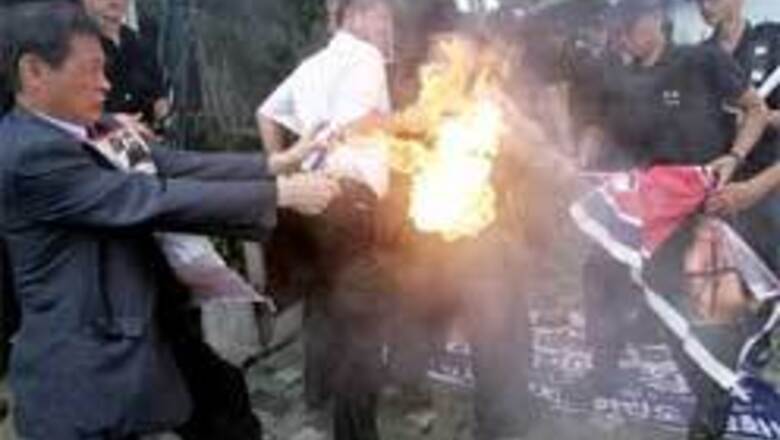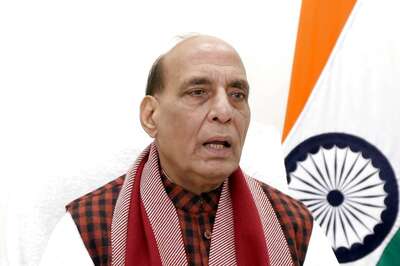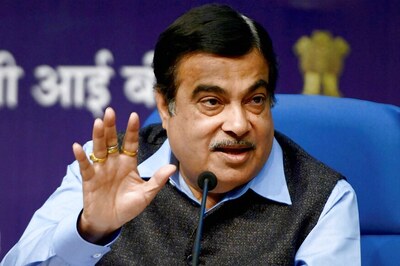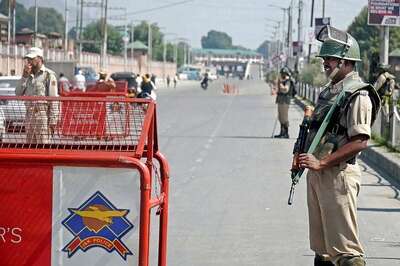
views
Tokyo: Many countries erupted in outrage on Wednesday over a series of brazen North Korean missile tests, with wary nations denouncing the launches as provocative, threatening sanctions and vowing to seek UN Security Council action.
Leading the chorus was the United States, which said the audacious military exercise - including the abortive launch of a long-range Taepodong-2 believed capable of reaching American shores - was meant to ''intimidate'' other countries.
Japan, sitting in the missiles' strike zone, put its military on high alert, while Australia warned of more possible launches. Russia said the six missile shots only undermined international trust in the impoverished, nuclear armed communist nation. Also caught in the chill were Pyongyang's relations with neighboring South Korea.
The UN Security Council was meanwhile planning to hold an emergency session Wednesday morning to discuss the situation, according to a spokesman for the French mission. The meeting was requested by the Japanese mission.
The Japanese were expected to present a resolution condemning North Korea's firing of its missiles, according to a UN diplomat speaking on condition of anonymity, as plans for the resolution have not been finalized.
The missiles apparently fell harmlessly into the Sea of Japan, and US officials said the long-range one failed shortly after take-off. But the tests came at an especially sensitive time, when nuclear-armed North Korea is stalemated with regional powers over negotiations that would have Pyongyang give up its nuclear program in exchange for badly needed aid.
It was also a reminder of 1998 when North Korea shocked the region by firing a Taepodong missile over Japan and into the Pacific Ocean. Following protests over that test, Pyongyang observed a moratorium on long-range missile launches since 1999.
In Seoul, Suh Choo-suk, senior secretary to the South Korean president on national security, called the launch a ''provocative act'' and urged North Korea to return to the six-nation talks over its atomic weapons program.
The talks, held between North Korea, South Korea, China, the United States, Russia and Japan, have been stalled since last year over Pyongyang's insistence that Washington drop financial sanctions against it.
PAGE_BREAK
The sentiment was echoed by Australian Prime Minister John Howard, who condemned the launches, saying ''North Korea is in total breach of international obligations in doing this and I hope that North Korea feels isolated and feels the condemnation not only of Australia, the United States and Japan but also of China and naturally of South Korea.''
Australian Foreign Minister Alexander Downer, speaking after a telephone call to North Korea's Ambassador to Australia, said that the North Koreans probably plan more missile launches in the ''next day or two,'' although he didn't say why he suspected that.
US Secretary of State Condoleezza Rice planned to start conferring immediately with her counterparts from China, Japan, South Korea and Russia, and discuss UN Security Council action, National Security Adviser Stephen Hadley said.
The test launches came as the United States celebrated its Independence Day holiday and launched the space shuttle Discovery from Cape Canaveral, Florida.
Russia, once a protector of communist ally North Korea, also denounced the tests.
''We can say that the missile launches clearly do not contribute to a strengthening of trust-building measures in the region,'' Foreign Ministry spokesman Mikhail Kamynin was quoted as saying by Interfax news agency.
In Tokyo, Japanese Foreign Minister Taro Aso called for the UN Security Council to be convened over the issue, while warning there is ''very high possibility'' it would level economic sanctions against North Korea.
Japan stepped up the pressure by banning a North Korean ferry from making a scheduled port call in Japan early Wednesday.
Chief Cabinet spokesman Shinzo Abe said further action, including freezing money transfers from Japan to North Korea, could be taken depending on how North Korea responds to the international outcry over.
Port calls by North Korea ships also have come under scrutiny because of allegations that the vessels supply the North with hard currency and parts for its weapons programs.
Even Thailand, far out of range of North Korea's short-range missiles, protested, with Foreign Ministry spokesman Kitti Wasinondh saying Bangkok is ''extremely concerned'' and urging North Korea to return to the six-nation nuclear talks.


















Comments
0 comment